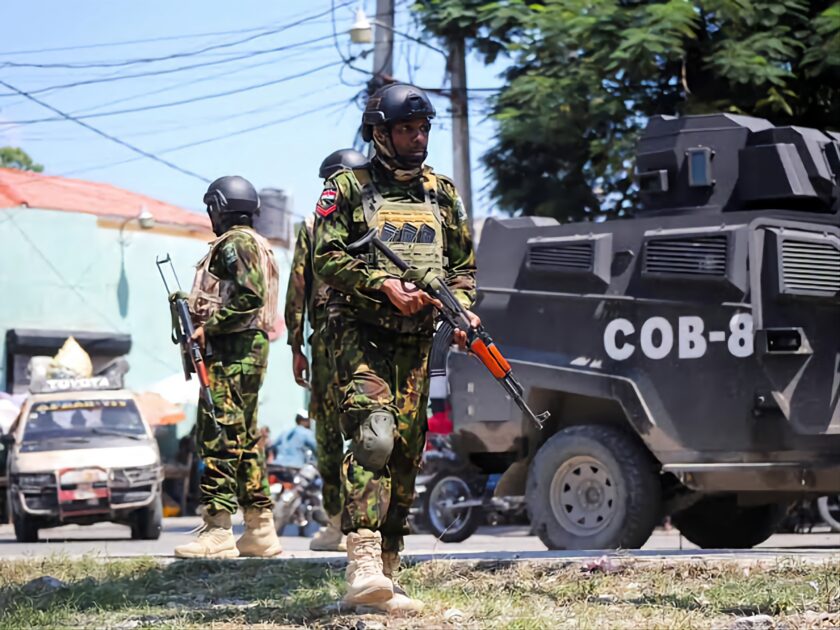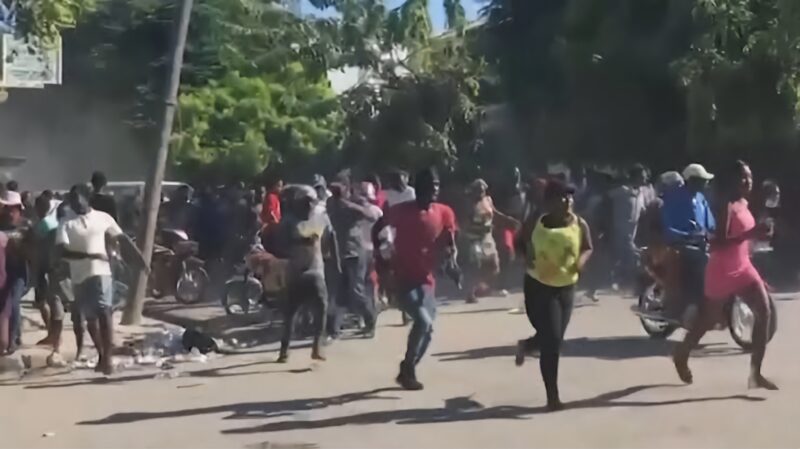A horrific massacre rocked the town of Pont-Sondé, central Haiti, on Thursday, leaving over 70 people dead in one of the deadliest gang attacks in recent years.
This brutal assault, carried out by the infamous Gran Grif gang, has shocked the nation and drawn international condemnation from the United Nations and local officials. The incident underscores Haiti’s deepening crisis as gang violence spreads beyond the capital of Port-au-Prince, further destabilizing the country.
The aftermath of the attack on Pont-Sondé, located in the fertile Artibonite region, revealed a grim picture of devastation. Bodies were found scattered across the streets, many of the victims shot in the head, a detail confirmed by Bertide Harace, a spokesperson for the Commission for Dialogue, Reconciliation, and Awareness to Save the Artibonite. Among the dead were 10 women, three infants, a young mother, her newborn baby, and a midwife. Activists and local officials initially estimated around 20 deaths, but as they gained access to more areas, the true scale of the carnage became apparent.
Adding to the horror, Gran Grif gang members reportedly set fire to at least 45 homes and 34 vehicles during the attack, leaving many survivors with nothing but the clothes on their backs. Hundreds of families, displaced by the violence, sought refuge in nearby towns, including the coastal city of Saint-Marc, where they took shelter in outdoor plazas.
The Motive Behind the Massacre
The motive for the attack remains unclear, though several theories have emerged. One possibility is that the violence was tied to ongoing turf wars between rival gangs. However, unlike other attacks concentrated in Port-au-Prince, Pont-Sondé falls within Gran Grif’s own territory, complicating the narrative.
A report by Haiti’s National Human Rights Defense Network suggested that the gang may have targeted the town for alleged collaboration with a self-defense group known as “The Coalition,” which had been working to limit gang activity in the area. Gran Grif gunmen accused locals of hindering their ability to profit from a makeshift toll they had recently established nearby.
The Gran Grif gang is no stranger to such brutal tactics. The gang was originally formed nearly a decade ago when former Haitian legislator Prophane Victor armed young men in the region to secure his electoral control over Artibonite.
Over time, the gang grew in power, extending its influence throughout central Haiti. Both Victor and Gran Grif’s current leader, Luckson Elan, were sanctioned by the U.S. in September 2024, part of broader international efforts to curb gang-related violence in Haiti.
This week’s massacre in Pont-Sondé mirrors a similar pattern of violence seen in Port-au-Prince, where gangs control an estimated 80% of the city. Gang-related attacks in Haiti have escalated dramatically in recent years, often involving indiscriminate killings of civilians in rival-controlled areas as gangs vie for dominance.
Earlier this year, in January 2023, the Gran Grif gang was implicated in the killing of six police officers during an attack on a police station in nearby Liancourt. Just a month later, the same gang’s activities forced the closure of a hospital that serves more than 700,000 people.
Global Condemnation
International reaction to the massacre has been swift. The United Nations strongly condemned the violence, describing it as a heinous crime against defenseless men, women, and children. Prime Minister Garry Conille of Haiti echoed these sentiments, calling the attack an assault on the entire Haitian nation.
Meanwhile, U.N. Secretary-General António Guterres expressed outrage over the incident, emphasizing the urgent need for international support in the ongoing fight against gang violence in Haiti. He urged the global community to fund efforts to back the Haitian National Police, along with a multinational force led by Kenya, currently working to restore order.

In the wake of the attack, Haiti’s government deployed an elite police unit from the capital to the town, though many question whether the response will be enough to contain the spiraling violence.
The Artibonite region, which plays a crucial role in Haiti’s agricultural output, has seen an alarming rise in gang-related violence over the past year. This instability threatens not only the lives of those living in the region but also Haiti’s food security, which has already been jeopardized by widespread insecurity.
Many have lost loved ones, homes, and any sense of security. As they rebuild their lives, Haiti as a whole must confront the underlying issues that have allowed gang violence to flourish. The international community’s response will be crucial in determining whether the country can emerge from this dark period or whether more towns like Pont-Sondé will fall victim to similar tragedies.










Join our Channel...